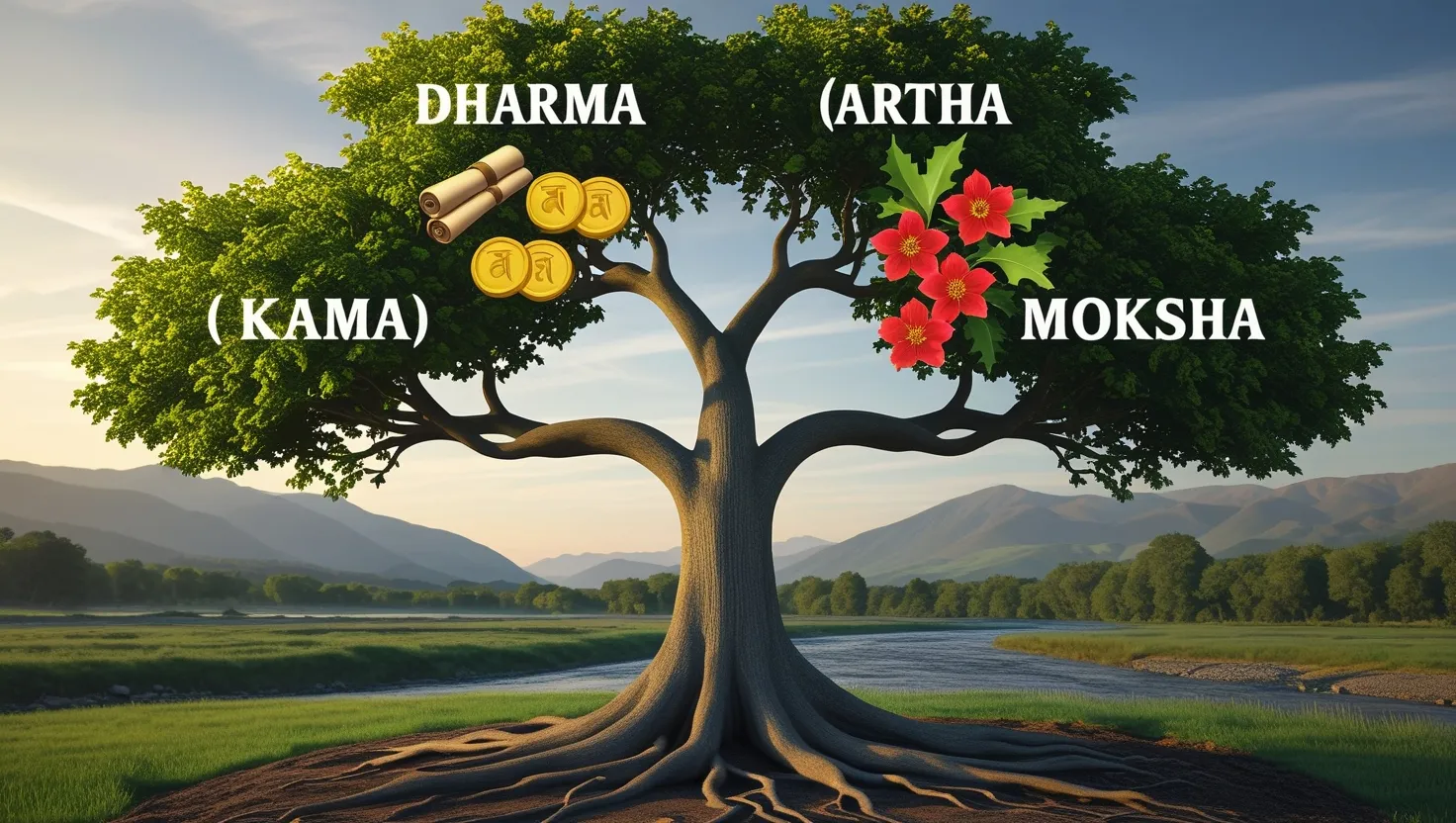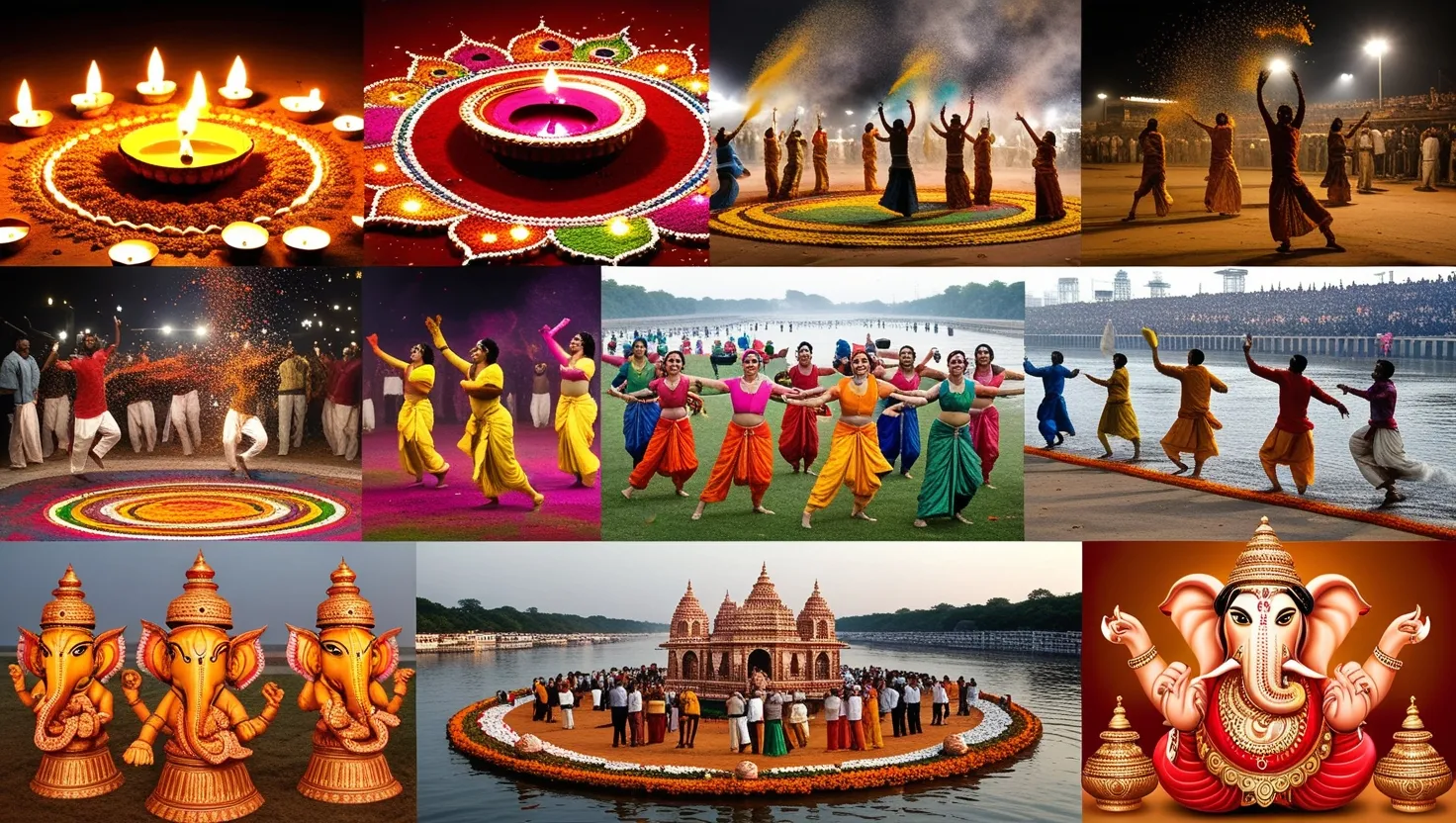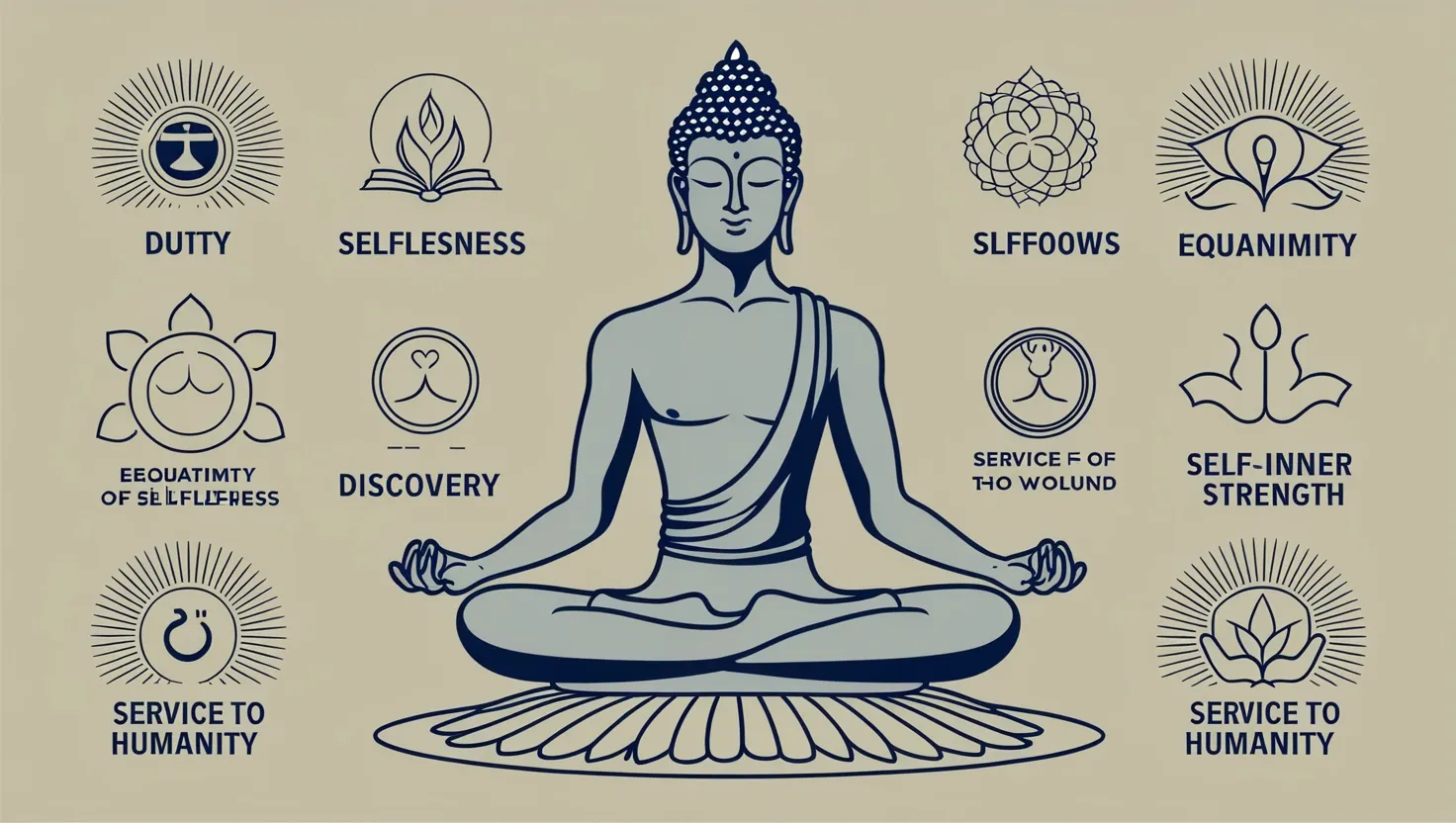In the vast and intricate landscape of Hindu philosophy, the concept of karma stands as a cornerstone, shaping our understanding of action, consequence, and personal responsibility. This ancient principle, far from being a simplistic notion of cause and effect, delves deep into the moral fabric of human behavior, influencing every aspect of life from the mundane to the spiritual.
At its heart, karma is about the universal law that every action, whether of the mind, speech, or body, generates a force of energy that inevitably returns to the doer. This includes not just physical deeds but also thoughts and intentions, highlighting the profound impact of our inner world on our outer reality. The law of karma underscores that individuals are architects of their own destinies, responsible for the choices they make and the consequences that follow.
One of the most compelling aspects of karma is its integration with the concept of detachment, as eloquently expressed in Hindu texts like the Bhagavad Gita. Here, the teachings encourage individuals to perform their duties without being overly concerned with the outcomes. This detachment, or ‘nishkama karma,’ fosters a sense of selfless service, where actions are performed for their inherent value rather than for personal gain or recognition. This mindset transforms daily tasks into acts of worship, infusing life with a sense of purpose and meaning.
Karma is also inextricably linked with the cycle of rebirth, or samsara, a central tenet of Hindu philosophy. According to this belief, the accumulated karma from one’s actions in this life influences the circumstances of future lives. This creates a moral continuum across multiple existences, where past actions shape present realities and present choices sculpt future destinies. This cycle is not a punishment or reward system but a mechanism for growth and learning, guiding souls towards the ultimate goal of liberation, or moksha.
In daily life, the concept of karma serves as a powerful motivator for ethical behavior and personal accountability. It encourages individuals to consider the long-term consequences of their actions, fostering a sense of moral responsibility that extends beyond immediate gratification. Every decision, no matter how small, is performed with the awareness that it has the potential to impact not just the present but also the future. This mindfulness cultivates a culture of ethical behavior, compassion, and responsibility towards oneself and the community.
The idea of karma also offers a unique framework for understanding life’s inequalities and challenges. It suggests that current circumstances are a result of past actions, while emphasizing the power of present choices in shaping the future. This perspective provides a sense of control and agency, encouraging individuals to focus on what they can change rather than lamenting over what they cannot. It is a message of hope and empowerment, reminding us that our present actions have the power to mitigate the effects of past negative karma and pave the way for a more favorable future.
In the modern context, karma provides valuable insights into personal growth and social ethics. It encourages a holistic view of action and consequence, relevant in addressing contemporary moral dilemmas. For instance, the concept of karma can help us understand the interconnectedness of our actions and their impact on the environment and society. It promotes a sense of collective responsibility, urging us to consider how our individual choices contribute to the larger social and environmental landscape.
Moreover, karma offers a unique lens through which to view social justice and inequality. It suggests that the disparities we see in the world are not just random occurrences but are instead the result of a complex web of past actions and choices. This perspective does not absolve us of our responsibility to address these issues but rather encourages us to approach them with a deeper understanding and empathy. By recognizing the karmic roots of social injustices, we can work towards creating a more equitable society, one that acknowledges the past while striving for a better future.
The dynamic nature of karma is another aspect that sets it apart from a static moral code. It is not a fixed destiny but a fluid and ever-changing force that can be transformed through conscious effort. By engaging in positive actions, cultivating good intentions, and living according to one’s righteous duty, or dharma, individuals can mitigate the effects of past negative karma. This dynamic aspect of karma provides a continuous cycle of growth and improvement, encouraging individuals to strive for personal and spiritual development.
In practical terms, the influence of karma on daily life is palpable. It encourages mindful living, where every action is performed with awareness of its potential impact. This mindfulness fosters a sense of integrity and honesty, guiding individuals to make choices that align with their moral compass. Whether it is in personal relationships, professional endeavors, or community service, the concept of karma reminds us that our actions have consequences and that we must act with responsibility and compassion.
As we navigate the complexities of modern life, the concept of karma offers a timeless wisdom that transcends cultural and temporal boundaries. It is a reminder that our actions are not isolated events but part of a larger cosmic narrative. By embracing this perspective, we can cultivate a deeper sense of purpose and meaning, recognizing that every choice we make has the power to shape not just our own lives but the world around us.
In conclusion, the concept of karma in Hindu philosophy is a rich and multifaceted principle that influences ethics and personal responsibility in profound ways. It is a call to live mindfully, to act with integrity, and to recognize the interconnectedness of all actions. As we reflect on the teachings of karma, we are reminded of the enduring power of our choices and the infinite potential for growth and transformation that lies within each of us.






